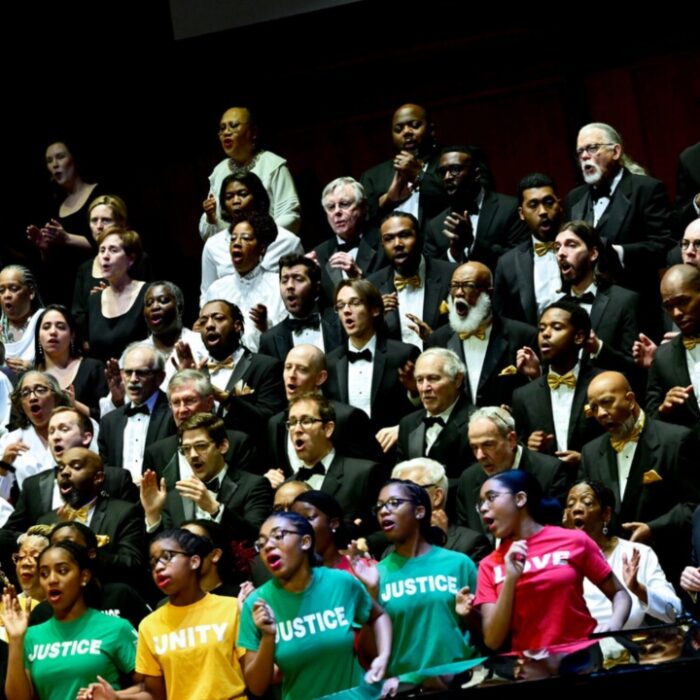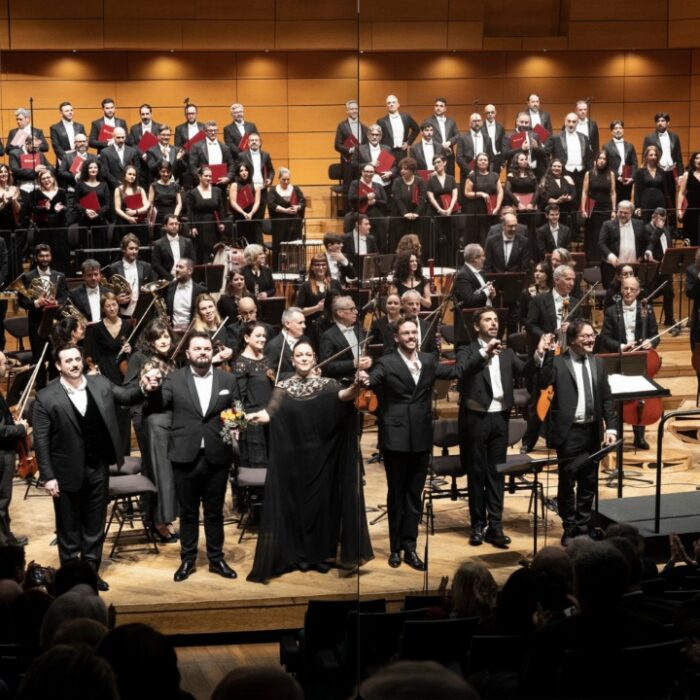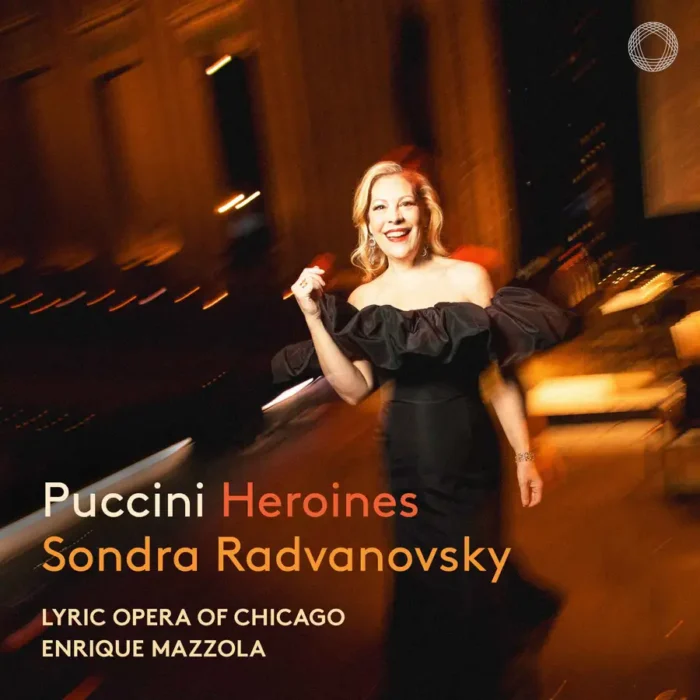
Berwaldhallen 2025 Review: Carmina Burana
By John VandevertFor an hour and five minutes on the evening of May 8, 2025, Berwaldhallen was not Berwaldhallen as Carl Orff’s “Carmina Burana” took control of our minds, reshaping our understanding of ourselves and the world. What had been a hall full of strangers eagerly awaiting the sonorous beauty of musical excellency transformed into an arena of interpreters of philosophical truth. Every melody and phrase of the performance explored the humorous essence of what it is to be human.
A satirical jab against human capriciousness and lordship over the natural order, a dutiful prayer to the sublime peace brought about through divine submission, and a resonant meditation on the inescapability of fate, Carl Orff’s 1937 immortal cantata, “Carmina Burana,” has become an analogy for the highest fallacy of post-postmodern life. We have become a thoroughly self-serving and ungrateful species who claim to be advanced and yet, for all our achievements, cannot grasp why we are still bound by a series of unremovable chains. Those chains, as this evening revealed, are transfixed by immature desires to be one’s own master when, in fact, we are masters of nothing; only servants to Nature, the greatest lord of all.
Led by the untouchable Yi-Chen Lin, a firebrand whose handling of tempo, rhythm, and meter is unbelievably sophisticated, the Swedish Radio Choir with the Stockholm Cathedral Chamber Choir, the unsurprisingly harmonious Swedish Radio Symphony Orchestra, and three impeccable soloists (Karolina Bengtsson, Tobias Westman, and David Risberg), it was a night of sheer brilliance. With Westman and Risberg dressed in suits and Bengtsson in an ethereal white gown, the dramatic instantiation of universal struggles were given a stage. It became obvious that these soloists were participating in what was to be a chef d’œuvre in their personal careers, with their individual performances being unequivocal coups de maître.
While the choirs were superb, their handling of treacherous passages masterful, and their performative vocalisms tactful, this review will focus on Bengtsson, Westman, and Risberg. Each excelled in different ways and collectively, interpreted Orff’s first cantata with artful candor. From Risberg’s melodious ‘Omnia Sol temperat’ and youthful vitality throughout, and Westman’s calculated yet flexibly consistent ‘Olim lacus colueram,’ to Bengtsson’s truly resplendent ‘Amor volat undique,’ one must acknowledge perfection when it is presented. No moment was ill-conceived, no phrase unappreciated. This trio set a precedent for how Orff should be sung, with tact and artistic sophistication.
Risberg’s youthful timbre and steady spin was triumphant proof of his sophisticated artistry, neither recreating the hefty gravitas of more mature baritones nor attempting to replicate the profiles of others. Consistent and technically precise, yet playfully flexible and responsively adept, it was a joy to hear a savant at work. His mastery of dynamics and phrasing were by far the highest achievements, along with the fluidity, grace, and ease he found in his upper range and his artful navigation of falsetto. Perhaps not yet Hermann Prey, Risberg nevertheless substantiated himself as a maître d’Orff, caressing, poking, lamenting, and praising when necessary, bringing out the veracious heart of his musical ideas. His floridity in ‘Dies, nox et omnia’ was an exceptional display of tempered instinctiveness, whereas his ‘Circa Mea Pectora’ was rich and profound, as it should be. It was a performance he should be very proud of.
Westman, while only featured in the treacherous’Olim lacus colueram,’ deserves praise. His execution was not only precise but consistent, unadorned, and, most importantly, pure. Many tenors attempting this five minute section will, if lacking in sufficient training and technique, succumb to fatigue as the tessitura and repetitions eat away at the voice. Like Risberg, Westman sits in a class of his own. His performance was intense for all the right reasons, each seemingly strenuous repetition leaving his unassailable voice not only unaffected but energized, both in terms of timbre and technicality. With Orff, praise of vocal mastery is hardly a trivial affair: nothing in “Carmina Burana” is transition material. Westman’s handling of ‘Olim,’ where he clearly understood pacing and the needs of the vocal instrument, is deserving of high regard. I was reminded of Jaroslav Tománek’s 1973 performance. Westman’s performance continued the tradition in no small way.
Bengtsson, from her spritely ‘Amor volat undique’ to her crystalline ‘In trutina,’ invoked divinity itself in her sensuous prosody which complimented her equally debonair mastery of color and tone. It is neither excessive nor dramatic to say Bengtsson’s performance was exceptional in articulative clarity and cleanliness. These qualities complimented her angelic stature and selective moments of artistic bravado. Adjectives betray her performance, as warmth met purity, easeful spinning met rounded support, and innate bel canto legato met technical impermeability, especially in ‘Stetit puella’ and ‘Dulcissime.’ These were two moments where the full extent of Bengtsson’s prowess as a musician and artist became clear. That night I realized Bengtsson was one in a series of grand poetesses of song. Her performance seemed energized by a career-crafted intentionality given voice through well-developed technical capabilities and creative erudition. Yet another elegant coup de maitre, Bengtsson excelled as Cupid’s interpreter.
A fantastic evening of faultless performances, Berwaldhallen continues its tradition of uncompromising musical excellence. It is encouraging that the hall was packed and that the audience felt emboldened to give a standing ovation at a time when the fate of classical music appears more precarious than ever. Orff’s “Carmina Burana” teaches us that human desires, caprices, and wants are not innocent. If left alone, they can become dangerous barriers to our collective development, especially when we find ourselves blind to the powers that lie beyond our control: from love to fate to time itself. Raconteurs of immortal truisms, Bengtsson, Westman, and Risberg effectively collaborated to produce an evening of significance for our present and a reminder that life goes on.
Berwaldhallen’s 2025 performance of Carmina Burana can now be watched worldwide.


